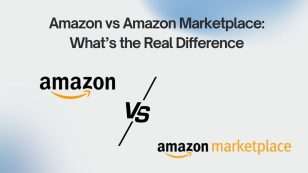Launching an online store is easier than ever, but choosing the right eCommerce platform? That’s where things get tricky. With dozens of platforms available—each promising to be the fastest, smartest, or most flexible—it’s no surprise that entrepreneurs and business owners often feel overwhelmed. The truth is, your platform isn’t just a tool. It’s the foundation of your entire digital business.
Two names that frequently come up in the conversation are Shopify and ZenCart. Both have been around for years and cater to online sellers—but they do so in very different ways. Shopify has built its reputation as an all-in-one, beginner-friendly solution that lets users launch sleek online stores with minimal hassle. ZenCart, on the other hand, offers deep customization for those who want more control and are willing to get their hands dirty.
In this detailed comparison, we’ll explore Shopify vs ZenCart across key areas like usability, features, customization, SEO, and more—so you can decide which platform is the right fit for your eCommerce journey.

Quick Snapshot: Shopify vs ZenCart
Before diving deep, let’s take a quick look at how Shopify and ZenCart stack up. These platforms serve the same goal—powering online stores—but their approach, structure, and ideal users differ significantly.
| Feature | Shopify | ZenCart |
| Platform Type | Hosted, cloud-based | Self-hosted, open-source |
| Ease of Use | Very beginner-friendly | Steep learning curve |
| Design & Themes | Sleek, modern templates | Basic templates, code-based customization |
| Customization | Limited without apps or code | Full control via coding |
| Cost Structure | Monthly subscription | Free software, pay for hosting & setup |
| Setup Time | Quick and guided | Manual and technical |
| Maintenance | Handled by Shopify | User-managed |
| Ideal For | Non-technical users, small to mid businesses | Developers, tech-savvy users |
Ease of Use and Setup
When it comes to getting your store up and running, the differences between Shopify vs ZenCart become immediately clear.
Shopify is designed for simplicity. As a fully hosted platform, it handles all the technical stuff behind the scenes—no need to worry about web servers, security patches, or installation files. Setting up a store takes just a few clicks, thanks to Shopify’s intuitive dashboard and drag-and-drop builder. Even if you’ve never built a website before, Shopify guides you through the process step-by-step, making it ideal for beginners and non-tech users.
ZenCart, on the other hand, requires more hands-on involvement. Since it’s a self-hosted, open-source platform, you’ll need to arrange your own web hosting, install the software, and manage server settings. The interface is more functional than user-friendly, and some basic knowledge of web development (or a developer on your team) is often necessary to set things up properly.
Verdict: If you’re looking for a hassle-free start, Shopify wins on usability. But if you want full control and don’t mind getting technical, ZenCart gives you the freedom to build exactly what you need.
Design and Customization between Shopify vs ZenCart
Design plays a huge role in how your brand is perceived—and how confident customers feel when making a purchase. Shopify and ZenCart offer very different experiences in this area.
Shopify stands out for its polished, modern themes. Even with the free themes, your store can look sleek and mobile-responsive right out of the box. Premium themes offer more flexibility, and you can easily make changes through the built-in theme editor—no coding required. Plus, the Shopify App Store is packed with design-enhancing tools to help personalize your storefront further.
ZenCart, in contrast, puts the control entirely in your hands. You have the freedom to tweak everything from layout to colors and structure—but that freedom comes with complexity. Most design customizations require working directly with HTML, CSS, or even PHP. While this allows for deep personalization, it also means the process can be time-consuming and technical.
Verdict: If you want a beautiful store up and running with minimal effort, Shopify delivers. But if you crave total design freedom and aren’t afraid to get into the code, ZenCart is your playground.
Features and Scalability
Whether you’re selling a handful of products or managing a growing inventory, the features your platform offers can make or break your operations. Shopify and ZenCart take different approaches to functionality and growth potential.
Shopify is built with scalability in mind. It comes packed with essential eCommerce features right from the start, including:
- Inventory tracking
- Shipping and tax management
- Multi-channel selling (Instagram, Facebook, Amazon, etc.)
- Abandoned cart recovery
- Built-in payment processing
As your business grows, Shopify grows with you. The platform offers higher-tier plans for scaling merchants and thousands of third-party apps to extend functionality without needing to code. It’s designed for smooth expansion without the technical headaches.
ZenCart, while offering strong eCommerce fundamentals, leans on manual control. It includes:
- Product and category management
- Customer and order tracking
- Basic promotions and discount features
However, adding advanced features often means manually installing third-party modules or tweaking code. It’s flexible—but far less plug-and-play than Shopify.
Verdict: Shopify offers streamlined growth with ready-to-use features and scalable plans. ZenCart is customizable but requires more technical know-how to scale effectively.
SEO and Marketing Capabilities
No matter how great your products are, your store won’t succeed without visibility. That’s where SEO and marketing tools come in—and both Shopify and ZenCart offer valuable, but different, strengths.
Shopify makes SEO simple, even for beginners. Right out of the box, it includes:
- Customizable title tags and meta descriptions
- Automatic sitemap generation
- Clean, mobile-friendly themes
- SSL certificates for security
- Integration with Google Analytics and Facebook Pixel
However, Shopify does have some limitations—like restricted control over URL structures and forced prefixes (e.g., /products/, /collections/). Still, for most users, its ease of use and built-in marketing features more than make up for these quirks.
In the marketing department, Shopify excels with tools for:
- Email marketing integration (Klaviyo, Mailchimp, etc.)
- Social media ad syncing
- Abandoned cart emails
- App-based loyalty programs and discounts
ZenCart, being open-source, offers unlimited SEO potential—if you know how to unlock it. You can:
- Fully control URLs, headers, and meta tags
- Manually optimize performance and site speed
- Install SEO-focused plugins
But the learning curve is steep, and setup is manual. The same applies to marketing—most campaigns require external tools and extra development.
Verdict: Shopify is the winner for built-in, beginner-friendly marketing and SEO tools. ZenCart gives more flexibility but demands technical expertise to leverage it.
Pricing and Cost Breakdown
Cost is often one of the biggest deciding factors when choosing an eCommerce platform. Shopify and ZenCart have very different pricing models—one is subscription-based, while the other is free to use but comes with hidden expenses.
Shopify Pricing
Shopify uses a monthly subscription system with tiered plans:
- Basic Plan: Ideal for new sellers
- Shopify Plan: For growing businesses
- Advanced Plan: For scaling operations with advanced reporting
Each plan includes hosting, SSL, and built-in features. However, there are extra costs to keep in mind:
- Transaction fees (unless using Shopify Payments)
- Premium themes ($140–$350 one-time)
- Paid apps that can increase your monthly bill
This model offers predictability and convenience, but those add-ons can add up quickly.
ZenCart Pricing
ZenCart is 100% free and open-source. That sounds appealing, but running a store with it comes with variable costs:
- Domain and hosting: Typically $5–$25/month
- Developer fees (if you need setup or customization help)
- Security tools and backups
- Optional modules or design templates
You’re only paying for what you use—but managing those pieces takes time and effort.
Verdict: Shopify gives you predictable, all-in-one pricing, ideal for simplicity. ZenCart may save money upfront but could cost more in time, maintenance, or development.
Support and Community
Running an online store means questions and challenges will come up—and when they do, the kind of support your platform offers can make all the difference.
Shopify shines when it comes to customer service. As a hosted platform, it provides:
- 24/7 support via live chat, phone, and email
- A comprehensive help center with articles, tutorials, and guides
- A large and active community forum where merchants and experts share tips
This level of support is especially valuable for beginners or solo entrepreneurs who need quick answers without hiring a developer.
ZenCart, being open-source, doesn’t offer official customer support. Instead, users rely on:
- A community-driven forum with experienced developers and store owners
- Extensive documentation, though it’s more technical in nature
- Hiring third-party developers for custom fixes or advanced help
While the ZenCart community is helpful, getting support can take longer and may require a deeper understanding of the platform.
Verdict: Shopify is the go-to for built-in, always-available customer support. ZenCart offers solid peer-to-peer help—but you’ll need more patience and technical confidence.
Security and Updates
Security isn’t just a technical detail—it’s a major trust factor for your customers. Ensuring your store is safe from breaches, data loss, and fraud is essential for any eCommerce business.
Shopify takes care of most security tasks for you. As a hosted solution, it includes:
- SSL certificates on all stores by default
- PCI-DSS compliance, ensuring secure handling of payment data
- Automatic updates to protect against new threats
- 24/7 monitoring to detect and prevent vulnerabilities
This hands-free security model gives peace of mind, especially for sellers without a technical background.
ZenCart, by contrast, puts the responsibility in your hands. Since it’s self-hosted, you’re in charge of:
- Installing an SSL certificate via your hosting provider
- Ensuring PCI compliance for payment systems
- Manually updating the software and any add-ons
- Protecting your server with security plugins or professional support
While ZenCart allows for greater control, it also carries more risk if updates are delayed or misconfigured.
Verdict: Shopify provides secure, worry-free protection with minimal effort. ZenCart offers flexibility, but requires active management to stay safe.
Ideal User Profiles
Both Shopify and ZenCart are powerful in their own ways—but they’re clearly built for different types of users. Understanding your own needs, skills, and resources will help you choose wisely.
Shopify is ideal for you if…
- You’re a beginner or small business owner without coding experience
- You want a quick, clean setup with minimal technical involvement
- You prefer a polished, user-friendly interface
- You value ongoing support, built-in security, and a worry-free experience
- You’re ready to pay monthly for convenience and reliability
Shopify is perfect for sellers who want to focus on their products and marketing, not on managing servers or writing code.
ZenCart is ideal for you if…
- You have web development skills or access to a developr
- You want full control over hosting, design, and site architecture
- You’re comfortable with manual setup and updates
- You’re working on a custom or complex store structure
- You prefer open-source flexibility over pre-packaged simplicity
ZenCart is better suited to users who like to build things from the ground up and who don’t mind investing time to get the exact result they want.
Bottom line: If you want ease, go with Shopify. If you want control, ZenCart is your toolkit.
Final Verdict: Which One Wins?
At the end of the day, there’s no absolute winner—just the platform that best fits your business, budget, and technical comfort level.
Shopify is the go-to for anyone who wants a clean, modern store up and running fast. It’s perfect for entrepreneurs who prefer focusing on products and customers rather than wrestling with code or server settings. With built-in tools, beautiful themes, and 24/7 support, Shopify offers a streamlined experience that grows with your business.
ZenCart, by contrast, appeals to a very different crowd. If you value hands-on control, want to tailor every aspect of your site, and have the technical skills (or team) to manage it, ZenCart can be a powerful engine for a unique, fully customizable store. It’s a great choice for developers, niche businesses, or anyone with specific technical requirements that mainstream platforms can’t meet.
So which should you choose?
Ask yourself:
- Do you want simplicity or flexibility?
- Are you comfortable with code—or not at all?
- Do you want to manage everything, or have it managed for you?
In the end, the best platform is the one that aligns with how you work—and where you want your store to go.
![]()










